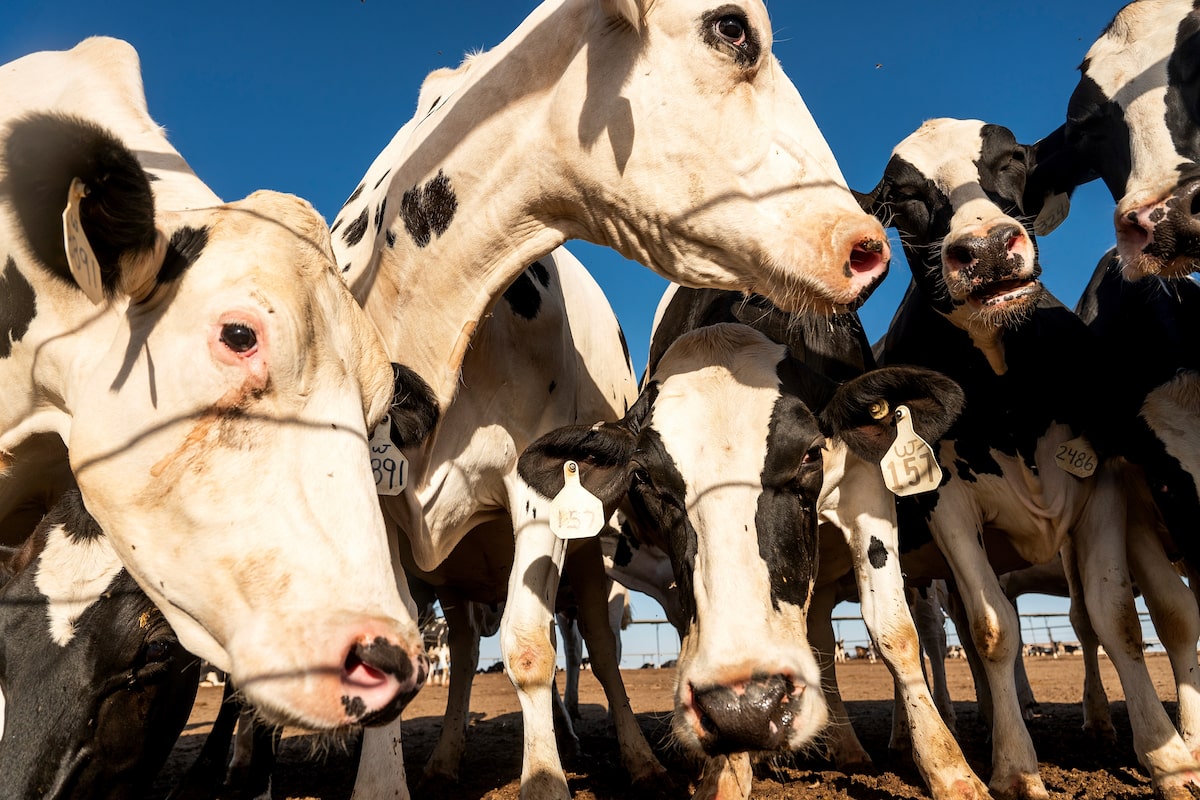Canada’s supply management system, which limits dairy imports, is expected to be one of the most heated parts of the USMCA review.Noah Berger/The Associated Press
Ottawa is considering changes that would allow more U.S. dairy products on Canadian store shelves, in an effort to address one of Washington’s most significant bilateral trade irritants, according to sources familiar with the federal government’s consultation process with industry.
The discussions between government representatives and key players in the country’s dairy industry are part of consultations ahead of a formal review of the United States-Mexico-Canada Agreement that the three countries will undertake in 2026.
The talks centre on changes to import restrictions and are part of broader conversations on supply management and U.S. trade, according to two sources with knowledge of the consultation process. The Globe and Mail is not naming the sources because they are not authorized to speak publicly on the matter.
Canada’s supply management system, which limits dairy imports, is expected to be one of the most heated parts of the review. U.S. President Donald Trump has consistently taken issue with Canada’s protectionist policies on dairy, and numerous trade disputes on the subject have made this issue one of the most tense within USMCA relations. Canadian consumers also stand to gain should greater market access be granted to U.S. exporters.
The dairy industry’s outsized political influence, explained in charts
Negotiations over the future of the USMCA, the continental trade pact signed by Mr. Trump in his first term, are seen as a crucial stage in ending the trade war. Goods shielded from tariffs by the agreement’s rules of origin have so far been blunting the impact of the U.S.’s wide-ranging levies on Canadian products.
Dominic Leblanc, the federal minister responsible for Canada-U.S. trade, launched the consultations with industry on Sept. 19. Mr. Leblanc’s office declined to comment on the state of the consultations, but it reiterated Ottawa’s commitment to protecting the industry.
“Our office has been engaging with a wide swath of sectors from across the Canadian economy, including supply-managed industries,” Gabriel Brunet, a spokesperson for Mr. Leblanc, said in a statement. “Canada’s supply management system will never be on the table.”
U.S. ITC investigating dairy protein dumping allegations against Canada’s supply management system
Canada’s largest dairy processors, including Saputo Inc. SAP-T, Agropur Cooperative and Lactalis Canada, either didn’t reply to requests for comment or declined to comment on the state of discussions with the government. The industry association that represents processors did not respond to requests for comment.
As part of controlling dairy supply across the country, Canada permits a small amount of foreign dairy to cross the border without facing steep levies. The products enter under a tariff rate quota, known as a TRQ, and importers must have a licence to obtain these goods. Only processors and distributors can get the TRQ licence.
The U.S. has long demanded a direct line to retailers and food service. The U.S. wants these companies to be granted import licences and alleges the current rules effectively hand imports to competitors who don’t want many U.S. products.
As a result, the market access is unfairly restricted and the type of products that cross the border are not what Canadian consumers want, according to the U.S. dairy industry and some Canadian dairy distributors.
“Consumers get a limited supply of true, good, American cheese and they also end up paying more for it,” said Joe Dal Ferro, president of Finica Food Specialties, a distributor that sells cheese to all major retailers across Canada.
This is not a new concern. The U.S. launched disputes under the USMCA in 2021 and 2023 concerning the import licensing rules. But so far, Canada has resisted demands to open licensing to retailers.
Making these changes now would be strategic and relatively easy, said Meredith Lilly, the Simon Reisman Chair in International Economic Policy at Carleton University. She previously served as foreign affairs and international trade adviser to prime minister Stephen Harper.
U.S. President Donald Trump has consistently criticized Canada’s protectionist supply management system. And Canada has sworn to stand behind it, doubling down in June by passing a bill that explicitly forbids any trade agreement that allows an increase in TRQ for supply managed goods.
But changing the rules around import licences would not be a violation of this legislation, Ms. Lilly said. The market access was already granted in 2018, so changing the rules would just be reallocating it from one group to another.
Changing the import rules also wouldn’t require reopening the USMCA, she added. And the change wouldn’t necessarily come at a cost to government. Ottawa already agreed to give dairy farmers $1.2-billion to compensate them for increased U.S. competition after the 2018 negotiations.
Editorial: The truth about the U.S. dairy industry
Canada has also recently made changes to the import licensing rules for other trading partners.
In July, Ottawa made changes to the import licensing allocation system under the Comprehensive and Progressive Agreement for Trans-Pacific Partnership. New Zealand had also claimed Canada was violating its trade commitments with the quota allocation system.
However, the changes fall short of U.S. demands. Ottawa did not grant retailers import licences for Pacific dairy. Instead Ottawa moved up the timeline by which importers need to return unused quota (so it could then be reallocated to other companies) and Ottawa introduced penalties for importers that do not use their quotas.
This was enough to satisfy New Zealand, but is unlikely to satisfy the U.S.
“The United States has been really clear,” Ms. Lilly said. “The way Canada currently allocates dairy TRQs is not with the spirit or the letter of the USMCA.”

